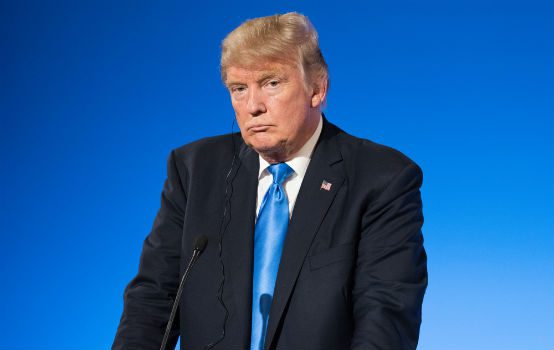Trump’s Very Unpopular Foreign Policy

A new AP poll on public opinion about U.S. foreign policy has some interesting and disturbing findings. The public strongly disapproves of Trump’s handling of foreign policy:
Overall, the president receives low marks from the public for his job handling foreign policy — 35 percent approve, while 63 percent disapprove. Like other issues, the partisan divide is startling. While 76 percent of Republicans approve, just 8 percent of Democrats say the same.
Most people respond to cues from their political leaders when assessing a president’s foreign policy, and almost everyone except for hard-core Trump supporters and Republican partisans has something bad to say about Trump’s conduct of foreign policy. He is too hawkish for restrainers, too friendly with authoritarians for progressives, too unilateralist for liberal internationalists, and not enough of a hegemonist for most neoconservatives. Pick an issue, and it is likely that Trump has been attacked from multiple directions on his position and then attacked again because of his incompetence and the dysfunction of his administration.
But the public isn’t just responding to criticism from political elites. They can also see that Trump has had hardly any significant successes overseas since he took office. Trump’s brusque and combative dealings with other leaders have soured U.S. relations with numerous other governments, and his trade wars and Iran policy have created rifts with our closest allies for no good reason. Trump’s own signature policies have largely failed on their own terms, or at the very least haven’t produced the desired results so far, and the president and his advisers have been remarkably bad at trying to build support for them. This is true of their more hawkish policies, and it is also true of withdrawal proposals. According to the poll, only 39% approve of the proposed withdrawal of U.S. forces from Syria, and that is probably because the president has had almost nothing to say in support of this decision and because the rest of his administration has been working overtime to make sure that the withdrawal never actually happens. It is difficult to rally support behind a policy when the president never talks about it at any length, and it is even harder when many top officials appear to doing their best to negate and reverse the presidential decision in question. There is a great deal of foreign policy activity in this administration, but not very much gets done.
Partisanship always accounts for some of these results. Compared to polling from the last decade and a half, the results in this poll are very odd. Clear majorities of Republicans support withdrawal from Syria and Afghanistan, and less than a third of Democrats support withdrawal in both cases. That can only be explained by partisanship: Republican voters are falling in line behind their president even when it means withdrawing from a foreign war, and most Democrats are opposed to withdrawal even though many of them would have probably been all for it if the Republican president were advocating staying indefinitely. Most of these respondents don’t care about the policy one way or another, and they are simply aligning themselves with or against the president depending on which political team they belong to. Many Democratic respondents appear to be giving relatively more hawkish responses because they perceive that as the way to express their hostility to Trump. That is a mistake, but it is understandable given the way that the withdrawal decisions have been presented and reported on.
Most Americans don’t pay close attention to foreign policy, but when certain stories break through and get a lot of coverage they will tend to have a larger effect on how the public sees the president’s handling of these issues. Trump’s disgraceful handling of the Khashoggi affair following his murder by Saudi government agents on the crown prince’s orders gave pretty much everyone in the country a high-profile reason to disapprove of how the president conducts U.S. relations with other states. If there is one thing that drives a lot of the disapproval to Trump’s handling of foreign policy, I would guess that many Americans are simply embarrassed by how Trump behaves and how his boorishness and ignorance reflect so badly on our country. He lives down to the stereotype of how the world sees us, and he brings discredit on himself and on the country as a whole.
Perhaps the most disturbing finding in the poll is that shockingly high percentage of respondents that claim to be “significantly concerned” by the threat from Iran’s nuclear program. Since there isn’t real any threat from Iran’s nuclear program, and the potential threat that it might represent has already been dealt with through the JCPOA, it is troubling that 48% still consider Iran’s peaceful nuclear program to be something worth seriously worrying about. I put this down to public ignorance, but it is also the product of the constant drumbeat of misinformation, administration lies, and poor reporting that has created the impression that Iran’s nuclear program is still something that might pose a threat to anyone. This result is an alarming reminder that at least half the country can be duped into believing in a threat that doesn’t even exist as long as they are fed a steady diet of garbage analysis and lies. Threat inflation is far too easy, and a large section of the public is far too willing to believe exaggerated claims about foreign threats.
Comments